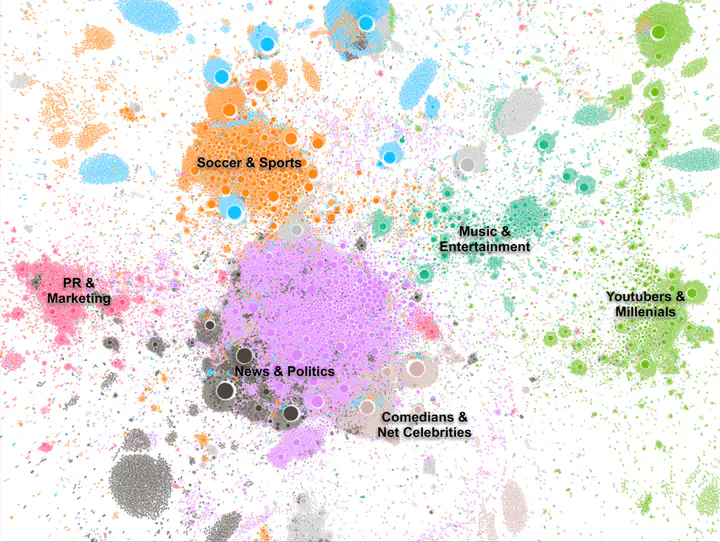Bots Among Us: Prevalence, Influence, and Roles of Automated Accounts in the German Twitter Follow Network
 Detail of a network visualisation of the German Twitterspehere Sample
Detail of a network visualisation of the German Twitterspehere SampleAbstract
Social bots are undermining trust in social media. They spread low-credibility content (Shao et al., 2018), so-called fake news (Vosoughi, Roy, & Aral, 2018), and spam (Bruns et al., 2018). However, most research analyses data based on the active sharing of links, keywords, or hashtags rather than assessing the longer-term presence of bots as an integral part of platforms.
To address this gap, we present what to our knowledge is the first study that assesses the prevalence, influence, and roles of automated accounts in a Twitter follow network on a national scale: the German-speaking Twittersphere. This work in progress allows us to analyse the long-term structural role, impact, and possible audience of bots beyond the context of single events and topics.
References
Bruns, A., Moon, B., Münch, F. V., Wikström, P., Stieglitz, S., Brachten, F., & Ross, B. (2018). Detecting Twitter Bots That Share SoundCloud Tracks. In Proceedings of the 9th International Conference on Social Media and Society - SMSociety ’18. Copenhagen, Denmark: ACM Press. http://doi.org/10.1145/3217804.3217923
Shao, C., Ciampaglia, G. L., Varol, O., Yang, K.-C., Flammini, A., & Menczer, F. (2018). The spread of low-credibility content by social bots. Nature Communications, 9(1). http://doi.org/10.1038/s41467-018-06930-7
Vosoughi, S., Roy, D., & Aral, S. (2018). The spread of true and false news online. Science, 359, 1146–1151. http://doi.org/10.1126/science.aap9559